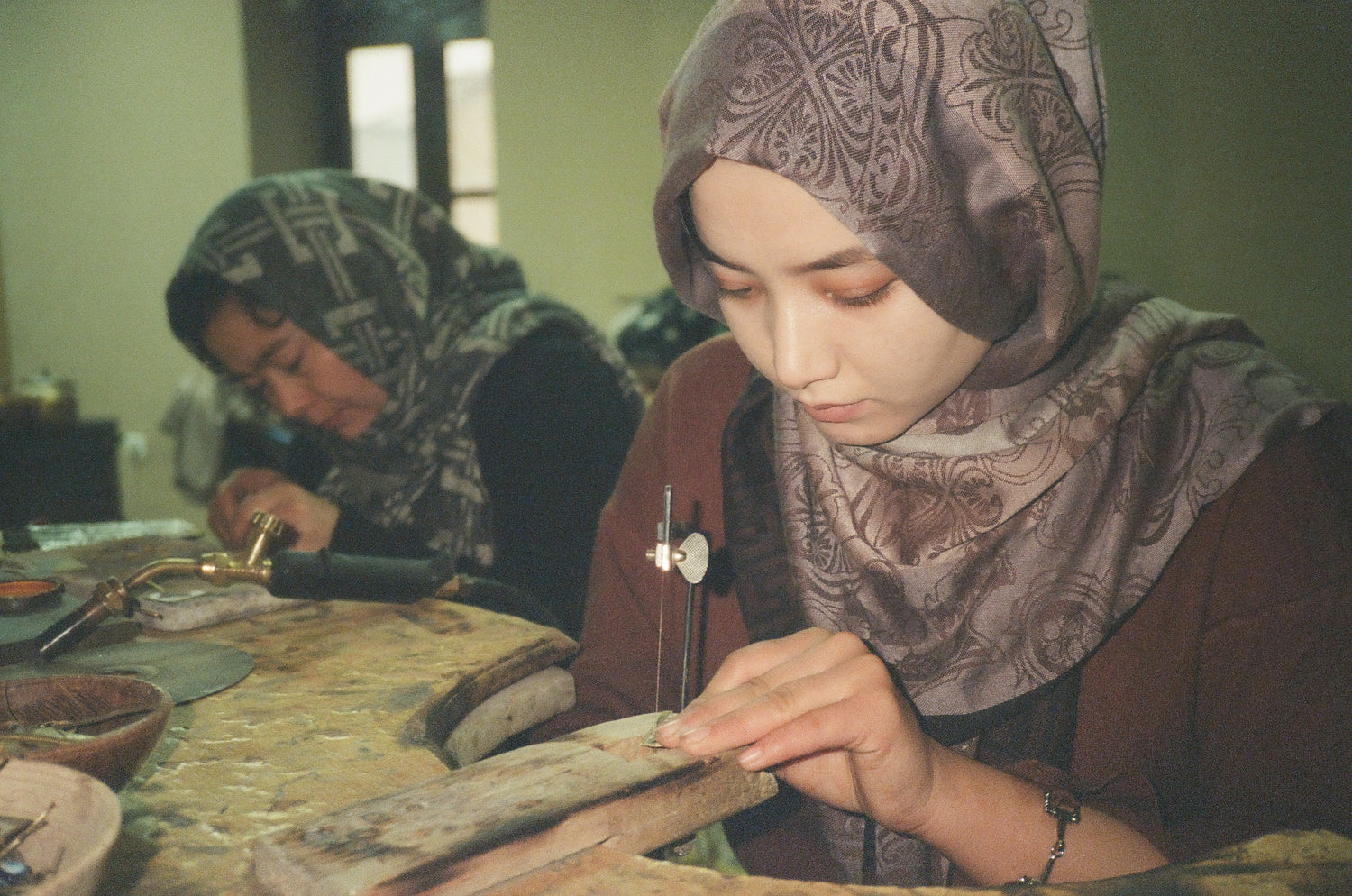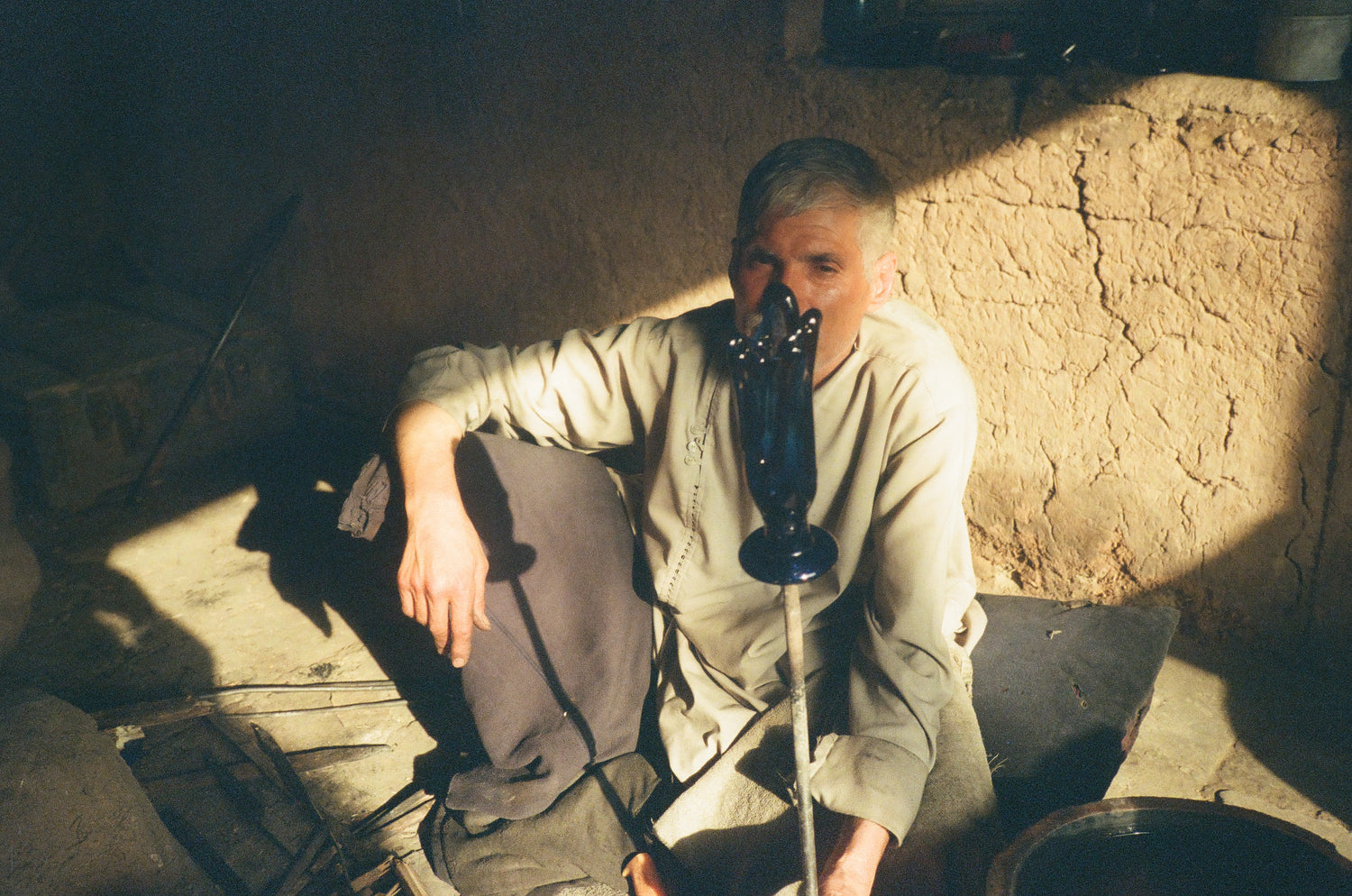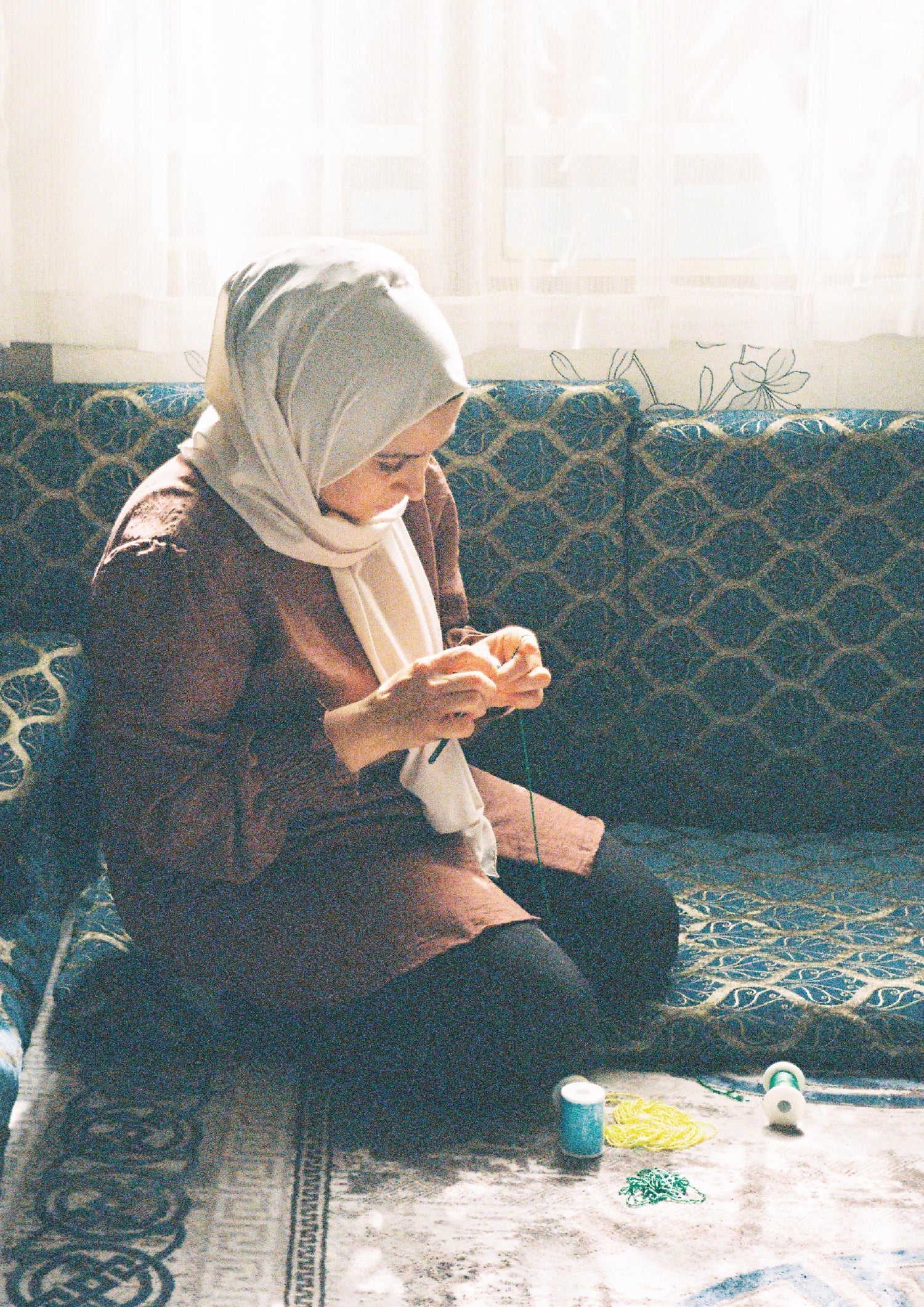
Cultural Heritage
At Østerland, we want to help preserve the rich and diverse cultural heritage of the Middle East and Afghanistan, which is a birthplace of immense knowledge and craftsmanship in areas like glassblowing, ceramics, embroidery, and carpet weaving, all of which are part of UNESCO’s World Heritage List. There are countless techniques, traditions, and methods, and by incorporating them into our products, we ensure that this knowledge and skill are preserved and developed.
Through our collections, we contribute to celebrating a rich tradition of craftsmanship while also supporting local artisans in their artistic and creative expression.
Partnerships
Partnerships are the cornerstone of Østerland, and all artisans are valuable partners whom we try to support in the best possible way.
We collaborate with artisans in Hatay, Istanbul, Kabul, and Herat. Fourteen of the artisans are women—many are Syrian refugees or internally displaced persons in Afghanistan.
Our primary focus is to create sustainable and lasting collaborations, and our partnerships are based on mutual respect and, over time, strong friendships. We visit the artisans in Turkey annually and are in daily dialogue with them in Afghanistan. In 2024, we were fortunate to receive a DANIDA grant, providing us with a unique opportunity to visit our partners in Afghanistan to engage young Danes in global development.
Additionally, we work for strong and strategic partnerships that can bring the artisans' work to the world. Our significant collaboration with Warfare, with whom we share containers, enables us to import larger quantities of handcrafted goods from Afghanistan, one of the most complex countries to trade with.
This concretely means that we have a consultant from MADE51 in Turkey to assess all our wages. They have evaluated that we in Østerland pay our partners 10-15% above the fair living wage.
In Afghanistan, data for the fair living wage is not publicly disclosed by the authorities. Therefore, we set prices using MADE51’s calculation models. They calculate the cost of living for a month in Afghanistan in relation to the basic food prices, and from there, we set our wages. In our workshop in Afghanistan, we have employed a production manager, and the expenses for the workshop and rent are factored into our prices.
Our partnership with MADE51 ensures working conditions that meet international fair trade standards for our artisans. Additionally, this partnership ensures that our unique collections reach a global audience.

Craftsmanship
Handicrafts tell stories—both about personal life experiences and about the collective. Our partners tell their own and others' stories through glass, carpets, jewelry, and embroidery. They knot, paint, embroider, blow glass, and create jewelry with unique stories that deserve to be heard!
All our products are handmade, meaning no two products are the same. We believe that creating slowly and sustainably can be seen and felt in the products.
Handicrafts in the Middle East and Afghanistan are practices tied to great pride, and at Østerland, we make it a point to preserve craft traditions and methods by giving this important cultural heritage new life through modern designs.
-
Eco-sustainable
Østerland’s philosophy of sustainability means that what we produce must be good for people and the environment. We work on the principle that sustainability should be incorporated into all parts of our business, to the extent that it is possible.
The raw materials we use for our products have local origins, in the cities and regions where our artisans work, and most of our artisans work from home, which also helps to minimize our carbon footprint.
All our products are handmade, and when we design, we focus on recycling and minimizing waste. In our workshop in Afghanistan, there is also special attention given to recycling and sustainability.
From time to time, you will notice that products are sold out on our webshop. To ensure that we pollute as little as possible, we do not receive deliveries every month; instead, we collect orders and receive deliveries a few times a year. -
Packaging
We pack all orders in FSC™️-certified paper and FSC™️-certified paper bags. Larger orders are packed in FSC™️-certified paper and FSC™️-certified cardboard boxes.
Additionally, we recycle as much as we can! For example, we use leftovers from our Kudno cushions to sew jewelry pouches and reuse packaging from Afghanistan.





